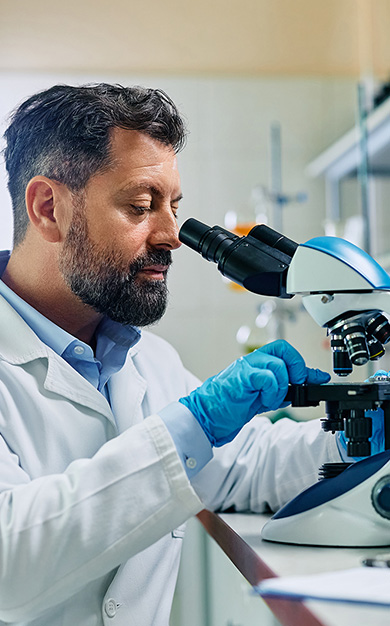NIH Expert Gives Tips on Lowering Risk of AMD
Written By: BrightFocus Editorial Staff
Written By: BrightFocus Editorial Staff

Learn about lifestyle changes that may help prevent age-related macular degeneration.
Emily Chew, MD, the featured speaker at a recent BrightFocus telephone chat, is a nationally known retina specialist and the deputy clinical director at the National Eye Institute (NEI) of the National Institutes of Health (NIH). Speaking as both a clinician and a researcher, she expressed her optimism that “the future’s going to be very bright for us, both for research and hopefully for the better care of our patients.”
It’s no surprise why Dr. Chew radiates hope and enthusiasm about advances in the field of vision care. She has extensive experience designing and implementing clinical trials on age-related diseases, including the Age-Related Eye Disease Study 2 (AREDS2). Monitoring those trials, she’s been able to see positive trends on the benefits of lifestyle changes, and why “it’s never too late,” for example, to have a good diet that may help prevent age-related macular degeneration (AMD).
She notes that 2020 is an auspicious year for vision-related work. “We need to educate our population that there are things they can do for themselves. AMD is a good example, where it can be affected by your lifestyle quite dramatically.”
Perhaps smoking is the clearest example of how we can influence our own health.
“People who smoke always have an increased risk of macular degeneration, and it increases almost like a dose response,” says Dr. Chew. “The more you smoke, the more likely you’re going to get macular degeneration.”
“The good news is that we can improve our health through lifestyle changes, particularly a healthy diet and exercise. And these changes are good for other parts of our body besides our eyes.”
Dr. Chew and colleagues observed from certain studies that people who eat a lot of green, leafy vegetables that contain a vitamin formulation of lutein and zeaxanthin have a lower risk of macular degeneration; and people who eat fish also have a lower risk of macular degeneration.
“People who ate what we call a Mediterranean diet (which is full of a really good amount of vegetables, legumes, good grains, and olive oil), there was a protective effect,” says Dr. Chew. “People who ate a good Mediterranean diet had an almost 25 to 30 percent reduced risk of having macular degeneration. Specifically, the green leafy vegetables and the fish were very important.”
We can correct or adapt to a number of things about our vision health as we age. If we have presbyopia (far-sightedness or the inability to read up close) we correct by wearing reading glasses, and adapt to that. Most of us will develop some form of cataract, and cataract surgery addresses a very common and correctable type of loss, notes Dr. Chew.
It all starts with getting a regular eye exam. “That eye exam can pick out a great deal. If you can treat things early on, rather than waiting until something bad happens, it’s so much better.”
BrightFocus Foundation is a premier global nonprofit funder of research to defeat Alzheimer’s, macular degeneration, and glaucoma. Since its inception more than 50 years ago, BrightFocus and its flagship research programs—Alzheimer’s Disease Research, Macular Degeneration Research, and National Glaucoma Research—has awarded more than $300 million in research grants to scientists around the world, catalyzing thousands of scientific breakthroughs, life-enhancing treatments, and diagnostic tools. We also share the latest research findings, expert information, and resources to empower the millions impacted by these devastating diseases. Learn more at brightfocus.org.
Disclaimer: The information provided here is a public service of BrightFocus Foundation and is not intended to constitute medical advice. Please consult your physician for personalized medical, dietary, and/or exercise advice. Any medications or supplements should only be taken under medical supervision. BrightFocus Foundation does not endorse any medical products or therapies.
Help Fight Macular Degeneration and Save Sight
Your donation helps fund critical research to bring us closer to a cure for this sight-stealing disease and provide vital information to the public.
Donate Today